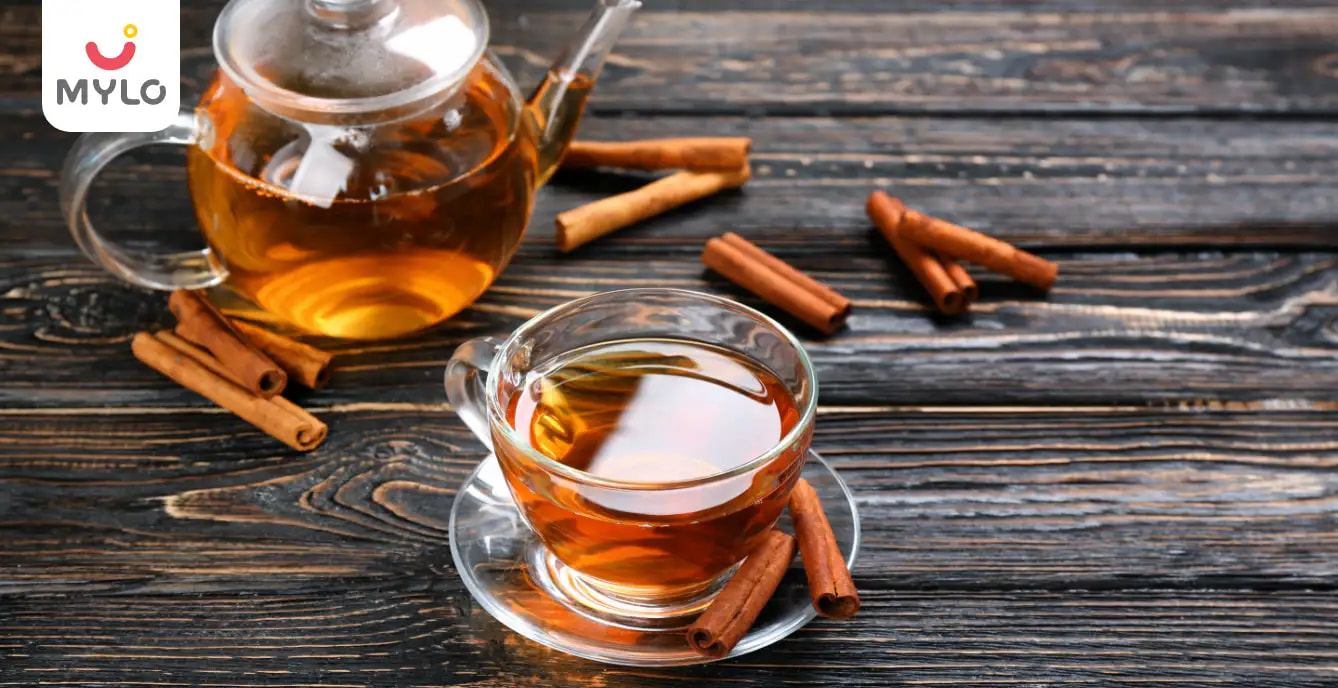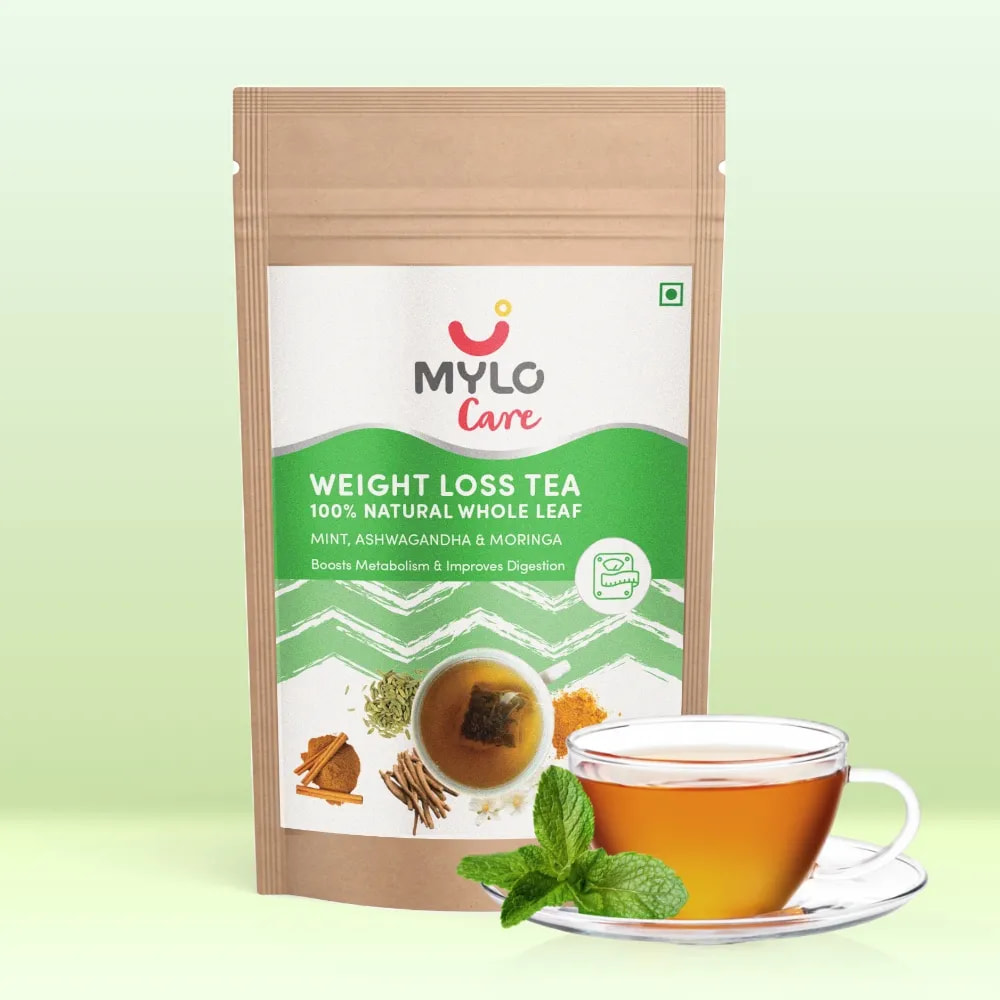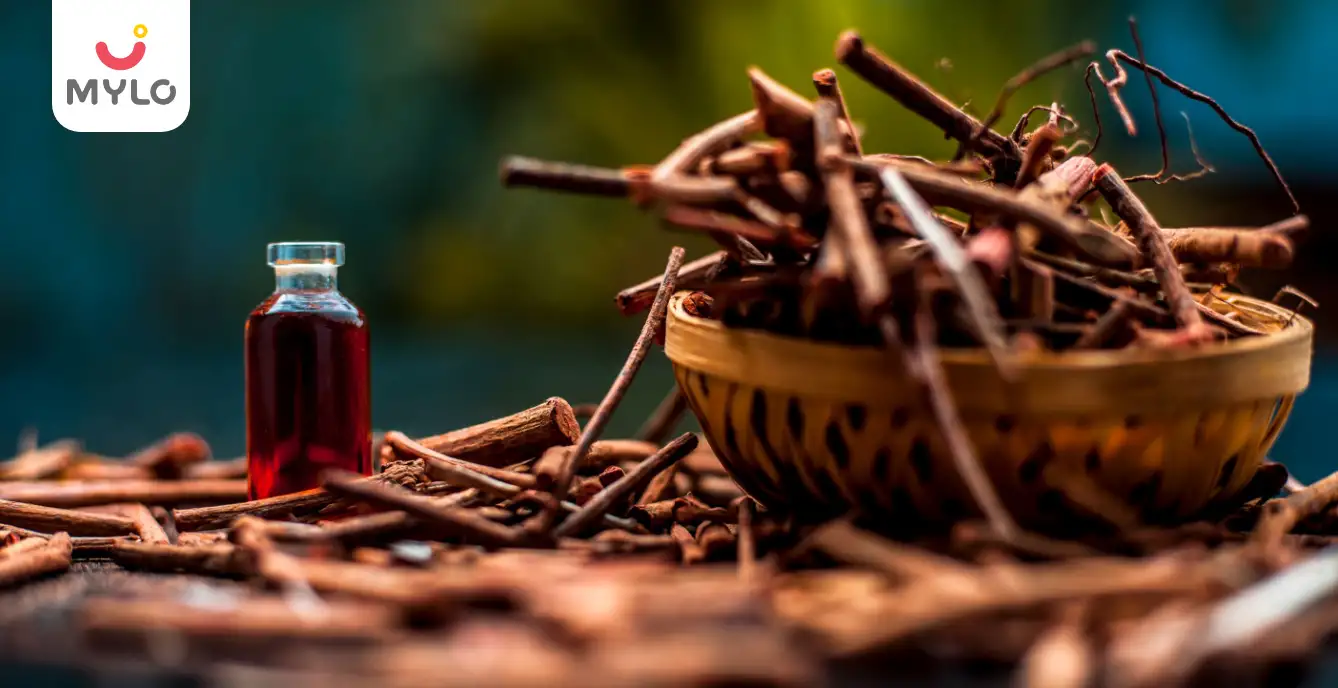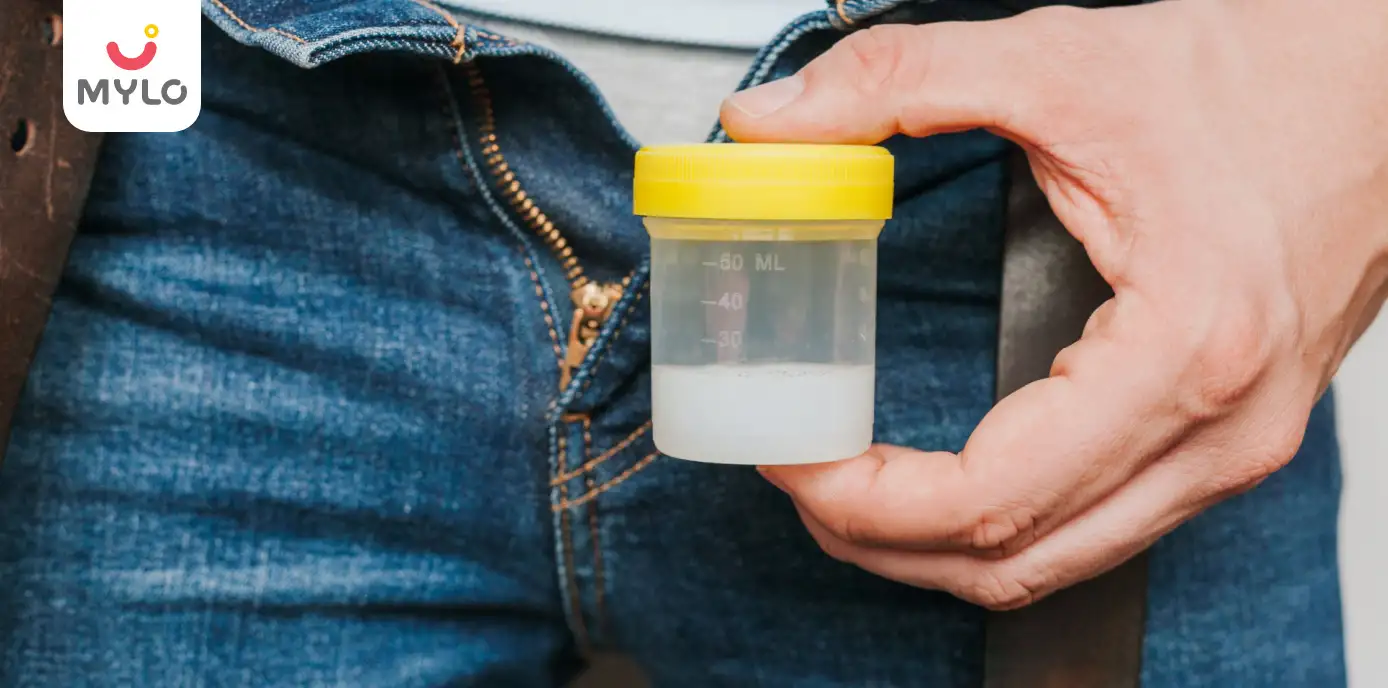Home

PCOS & PCOD

PCOS Tea: A Warm Cup of Tea to Help You Keep PCOS at Bay
In this Article

PCOS & PCOD
PCOS Tea: A Warm Cup of Tea to Help You Keep PCOS at Bay
Updated on 31 August 2023



Medically Reviewed by
Dr. Shruti Tanwar
C-section & gynae problems - MBBS| MS (OBS & Gynae)
View Profile

In a world where busy schedules and demanding lifestyles often take center stage, a warm cup of tea can be among the best ways to unwind after a long tiring day. But wouldn’t it be even nicer if this warm cup of tea could be your way to manage PCOS (Polycystic Ovary Syndrome) symptoms? PCOS tea- a herbal concoction of natural ingredients has recently gained popularity among women seeking to manage the challenges of PCOS.
In this article, we will uncover if a tea can really help manage a condition as complex as PCOS, if yes, then how to choose such a tea and the benefits you can expect to experience. So, steep yourself in the world of wellness as we unveil the secrets of tea for PCOS—a warm cup offering empowerment and relief, one sip at a time.
Can a Tea Help Reduce PCOS Symptoms?
Tea has been enjoyed for centuries for its numerous health benefits. It is known to contain antioxidants and other compounds that can promote overall well-being. But can it specifically help reduce PCOS symptoms?
While there is limited scientific research on the direct effects of tea on PCOS, some studies suggest that certain teas may have positive effects on hormonal balance and insulin resistance, both of which are key factors in PCOS.
While more research is needed to fully understand the impact of tea on PCOS symptoms, there is no doubt that incorporating a cup of tea into your daily routine can provide some relief and support your overall health.
Which Tea is Good for PCOS?
When it comes to selecting the best tea for PCOS, here are a few options that have shown potential benefits:
1. Cinnamon Tea
Cinnamon is known for its potential to improve insulin sensitivity. Brewing a cup of cinnamon tea can be a flavorful way to incorporate this spice into your routine and potentially support better blood sugar control.
2. Chamomile Tea
PCOS can be accompanied by stress and anxiety. Chamomile tea is well-known for its calming properties and may help promote relaxation and better sleep.
3. Green Tea
Known for its high antioxidant content, green tea is often regarded as a healthy beverage. It contains catechins, which have been shown to have anti-inflammatory and insulin-sensitizing properties.
4. Spearmint Tea
As mentioned earlier, spearmint tea has shown promise in reducing free testosterone levels in women with PCOS. It may help manage symptoms such as hirsutism (excessive hair growth) and acne.
But with such a dizzying variety of teas offering different benefits, it’s only natural to wish for a singular tea that could combine the benefits of multiple teas for PCOS. Well, consider your wish granted! Mylo offers a unique blend of herbs and spices packed into a PCOS tea to deliver a powerful punch on those pesky PCOS symptoms.
Fortified with ingredients like Shatavari, Manjistha, Shankh Pushpi, and Chamomile, Mylo’s herbal tea for PCOS can help alleviate symptoms like weight gain, insulin resistance, acne, unwanted hair growth, irregular periods, and more.
How to Select the Best Tea for PCOS?
When selecting a tea for PCOS, there are a few factors to consider. Here are some tips to help you choose the right tea:
1. Quality
Opt for high-quality teas, preferably loose leaf or organic, as they tend to retain more of their natural compounds.
2. Ingredients
Read the ingredient list and choose teas that contain the herbs or spices known for their potential benefits in managing PCOS symptoms.
3. Avoid Added Sugars
Avoid teas that have added sugars or artificial sweeteners, as they can lead to blood sugar spikes and disrupt hormonal balance.
4. Experiment and Observe
Everyone's body reacts differently to different teas. Experiment with various options and observe how your body responds. If you experience any adverse effects, discontinue use and consult a healthcare professional.
You may also like: PCOS Self-Care: How to Nurture Your Body and Mind
What are the Benefits of Drinking a Herbal Tea for PCOS?
Drinking natural tea for PCOS can offer several benefits beyond potential symptom management. Some of the benefits include:
1. Regulating menstrual cycles
Herbal teas that contain ingredients such as Shatavari, Manjistha, and Shankh Pushpi can help regulate menstrual cycles by balancing hormone levels and reducing insulin resistance.
2. Reducing androgen levels
Shatavari, a common ingredient in teas for PCOS, has been shown to have anti-androgenic effects, which may help reduce symptoms such as acne, hirsutism (excess hair growth), and hair loss in women with PCOS. By reducing the levels of male hormones in the body that interfere with ovulation, it can help boost fertility.
3. Managing insulin resistance
Many herbal ingredients are believed to help regulate blood sugar levels and improve insulin sensitivity, which can be particularly beneficial for women with insulin resistant PCOS. Improving insulin sensitivity can help regulate menstrual cycles and improve fertility.
4. Reducing inflammation
Shatavari and Shankh Pushpi are known for their anti-inflammatory properties, which may help reduce inflammation associated with PCOS. Reduced inflammation in the body can improve symptoms such as pain and swelling.
5. Promoting weight loss
By regulating hormones and reducing inflammation, these teas may also promote weight loss in women with PCOS. It can also help reduce cravings and prevent overeating, leading to weight loss. Ingredients, such as Manjistha, may help promote weight loss and reduce abdominal fat in women with PCOS.
6. Overall health benefits
Consuming a herbal tea for PCOS is generally considered safe and may provide additional health benefits such as improved digestion, reduced stress and anxiety and boosted immune function due to the inclusion of various herbs and spices.
How to Incorporate a PCOS Tea in Your Routine?
Now that you know which teas are good for PCOS and the potential benefits they offer, let's explore how you can incorporate them into your daily routine.
1. Timing
Enjoy your tea at a time that works best for you. Some people prefer starting their day with a cup of tea, while others find it soothing to have it before bed.
2. Brewing
Follow the brewing instructions specific to the tea you are using. Generally, herbal teas require steeping in hot water for a few minutes.
3. Variety
Switch up your tea options to keep things interesting. Try different flavors and blends to find your favorites.
4. Mindful Consumption
Take the time to savor your tea and be present in the moment. Use it as an opportunity to relax and unwind.
Remember, while a tea may offer potential benefits, it's important to approach it as part of a holistic approach to managing PCOS symptoms. Incorporate it alongside a healthy diet, regular exercise, and other lifestyle changes recommended by your healthcare professional.
You may also like: PCOD vs. PCOS: The Ultimate Guide to Understanding the Key Differences
Final Thoughts
PCOS can be a challenging condition to manage, but incorporating a warm cup of PCOS tea into your daily routine may provide some relief and support your overall well-being. While there is limited scientific research on the direct effects of tea on PCOS symptoms, certain teas have shown potential benefits in managing hormonal balance and insulin resistance. Remember to select high-quality teas, avoid added sugars, and consult with a healthcare professional if you have any concerns.
References
1. Shen W, Pan Y, Jin B, Zhang Z, You T, Qu Y, Han M, Yuan X, Zhang Y. (2021). Effects of Tea Consumption on Anthropometric Parameters, Metabolic Indexes and Hormone Levels of Women with Polycystic Ovarian Syndrome: A Systematic Review and Meta-Analysis of Randomized Controlled Trials. Front Endocrinol (Lausanne)
2. Grant P. (2010). Spearmint herbal tea has significant anti-androgen effects in polycystic ovarian syndrome. A randomized controlled trial. Phytother Res.
3. Moini Jazani A, Nasimi Doost Azgomi H, Nasimi Doost Azgomi A, Nasimi Doost Azgomi R. (2019). A comprehensive review of clinical studies with herbal medicine on polycystic ovary syndrome (PCOS). Daru.

100% Natural Weight Loss Tea- 30 Tea Bags
Reduces Belly Fat | Boosts Metabolism & Improves Digestion | Improves Sleep | NABL Lab Tested
₹ 419

4.3
(1134)


7594 Users bought





Medically Reviewed by
Dr. Shruti Tanwar
C-section & gynae problems - MBBS| MS (OBS & Gynae)
View Profile


Written by
Madhavi Gupta
Dr. Madhavi Gupta is an accomplished Ayurvedic doctor specializing in Medical content writing with an experience of over 10 years.
Read MoreGet baby's diet chart, and growth tips

Related Articles
Related Questions
Influenza and boostrix injection kisiko laga hai kya 8 month pregnancy me and q lagta hai ye plz reply me

Hai.... My last period was in feb 24. I tested in 40 th day morning 3:30 .. That is faint line .. I conculed mylo thz app also.... And I asked tha dr wait for 3 to 5 days ... Im also waiting ... Then I test today 4:15 test is sooooo faint ... And I feel in ma body no pregnancy symptoms. What can I do .

Baby kicks KB Marta hai Plz tell mi

PCOD kya hota hai

How to detect pcos

RECENTLY PUBLISHED ARTICLES
our most recent articles

Ayurveda & Homeopathy
Manjistha: Ayurveda's Best-Kept Secret for Health and Beauty

PCOS & PCOD
Metformin for PCOS: How This Medication Can Help Regulate Hormonal Imbalances

Conception
5 Tips on How to Get Pregnant When You Are Fat

Medications
Do Antibiotics Affect Fertility: Debunking Common Myths and Misconceptions

Fertility
Disadvantages of Releasing Sperm Daily: Debunking Common Myths

Medical Procedures
Varicocele Surgery Cost: What You Need to Know Before You Go Under the Knife
- Testicular Pain: Don't Ignore, Know When to Seek Medical Attention
- PCOS with Regular Periods: Understanding the Symptoms and Implications
- Bulky Uterus: What You Need to Know About this Common Gynecological Issue
- Mylo Baby Wipes Review
- PCOS Treatment in Ayurveda: The Ultimate Guide to Natural Treatment Options
- PCOS Acne: The Ultimate Guide to Causes, Treatment and Management
- Maggi in Pregnancy: Is It Safe to Enjoy Your Favorite Instant Noodles?
- Oats During Pregnancy: A Winning Combination for Both Mom and Baby
- Types of IVF, Their Benefits and Side Effects Everything You Need to Know..
- How to Sterilize Baby Bottles: The Ultimate Step-by-Step Tutorial
- What to eat when trying to conceive
- White Discharge After IUI: Is It Normal & When to See a Doctor
- Diet & Exercises Your Wife Can Follow During Pregnancy
- Can a diet plan help deal with infertility in women and boost the chances of conception?


AWARDS AND RECOGNITION

Mylo wins Forbes D2C Disruptor award

Mylo wins The Economic Times Promising Brands 2022
AS SEEN IN
















- Mylo Care: Effective and science-backed personal care and wellness solutions for a joyful you.
- Mylo Baby: Science-backed, gentle and effective personal care & hygiene range for your little one.
- Mylo Community: Trusted and empathetic community of 10mn+ parents and experts.
Product Categories
baby carrier | baby soap | baby wipes | stretch marks cream | baby cream | baby shampoo | baby massage oil | baby hair oil | stretch marks oil | baby body wash | baby powder | baby lotion | diaper rash cream | newborn diapers | teether | baby kajal | baby diapers | cloth diapers |




